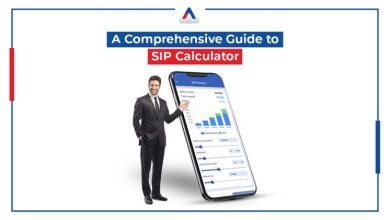Udyam Registration and Government Initiatives: Catalyzing MSME Development

Udyam Registration is a simplified online process introduced by the Ministry of Micro, Small, and Medium Enterprises (MSME) for the classification and registration of MSMEs. Under this system, businesses can register themselves as micro, small, or medium enterprises based on their investment in plant and machinery or equipment. Registration is a prerequisite for availing of various government schemes, subsidies, and support mechanisms.
Note: You can also Apply for Udyam Registration
Benefits of Udyam Registration:
Financial Assistance:
Registered MSMEs are eligible for financial support schemes such as the Credit Linked Capital Subsidy Scheme (CLCSS) and the Prime Minister’s Employment Generation Programme (PMEGP).
Ease of Doing Business:
Udyam Registration simplifies the regulatory framework, making it easier for MSMEs to operate and grow without unnecessary bureaucratic hurdles.
Credit Accessibility:
Financial institutions and banks often prioritize Udyam-registered enterprises for loans, ensuring better access to credit for business expansion and development.
Government Tenders and Subsidies:
Udyam Registration enhances the visibility of MSMEs, making them eligible to participate in government tenders and avail of subsidies provided by various ministries.
Government Initiatives Supporting MSMEs:
Apart from Udyam Registration, the Government has introduced several other initiatives to boost the MSME sector:
Atmanirbhar Bharat Abhiyan:
The self-reliant India campaign promotes indigenous production, encouraging MSMEs to be key contributors to the country’s economic growth.
Credit Guarantee Fund Scheme:
The Credit Guarantee Fund Trust for Micro and Small Enterprises (CGTMSE) facilitates credit availability to MSMEs without the need for collateral, reducing the financial risks associated with entrepreneurship.
Technology Upgradation Support:
Various schemes like the Technology Upgradation Fund Scheme (TUFS) aim to enhance the technological capabilities of MSMEs, making them more competitive in the global market.
Skill Development Initiatives:
The government has recognized the importance of skill development in enhancing the capabilities of MSMEs. Initiatives like the Skill India Mission focus on upskilling the workforce, enabling MSMEs to meet the demands of a rapidly evolving business landscape.
Market Access Initiatives:
The government has launched various schemes such as the National SC-ST Hub and the Public Procurement Policy to facilitate market access for MSMEs. These initiatives aim to ensure that a certain percentage of government procurement is reserved for MSMEs, providing them with a significant avenue for business growth.
Digital Transformation Support:
The Digital India campaign encourages MSMEs to adopt digital technologies for improved efficiency and competitiveness. This includes initiatives to promote digital payment systems, e-marketing, and the use of technology for business operations.
Cluster Development Programs:
Cluster-based development programs, such as the Micro and Small Enterprises-Cluster Development Programme (MSE-CDP), focus on creating common facilities, infrastructure, and networking opportunities for MSMEs within specific geographic regions. This collaborative approach enhances the overall competitiveness of the sector.
Environmental Sustainability:
Recognizing the importance of sustainability, the government has introduced schemes like the Credit Linked Capital Subsidy Scheme for Technology Upgradation, which encourages MSMEs to adopt eco-friendly practices and invest in cleaner technologies.
Export Promotion Initiatives:
To boost international trade and increase the global footprint of MSMEs, the government has introduced export promotion schemes. Initiatives like the Export Credit Guarantee Corporation (ECGC) and the Market Access Initiative (MAI) aim to provide financial and promotional support to MSMEs for exploring international markets.
Research and Development Support:
Recognizing the importance of innovation, the government has implemented schemes such as the Technology Development and Modernization Fund (TDMF). This fund encourages MSMEs to invest in research and development activities, fostering a culture of innovation and technological advancement.
Financial Literacy Programs:
The government has taken steps to enhance financial literacy among MSMEs through programs like the Financial Literacy and Credit Counseling Centres (FLCCs). These initiatives aim to empower entrepreneurs with the knowledge and skills required for effective financial management.
You can also Apply for Udyam Re-registration
Crisis Management Support:
In times of economic challenges, such as the recent global pandemic, the government has introduced relief measures and stimulus packages specifically designed to support MSMEs. These measures include credit moratoriums, collateral-free loans, and other financial assistance programs to help businesses weather unforeseen economic downturns.
Conclusion:
In conclusion, the combined impact of Udyam Registration and various government initiatives is creating a conducive ecosystem for MSMEs to thrive. By addressing financial challenges, streamlining processes, and providing access to markets and technology, the government is paving the way for the sustainable development of the MSME sector. As small businesses play a pivotal role in economic growth, these initiatives contribute significantly to job creation, innovation, and inclusive development. Entrepreneurs and business owners are encouraged to actively engage with these initiatives to unlock the full potential of their enterprises and contribute to the overall prosperity of the nation.



